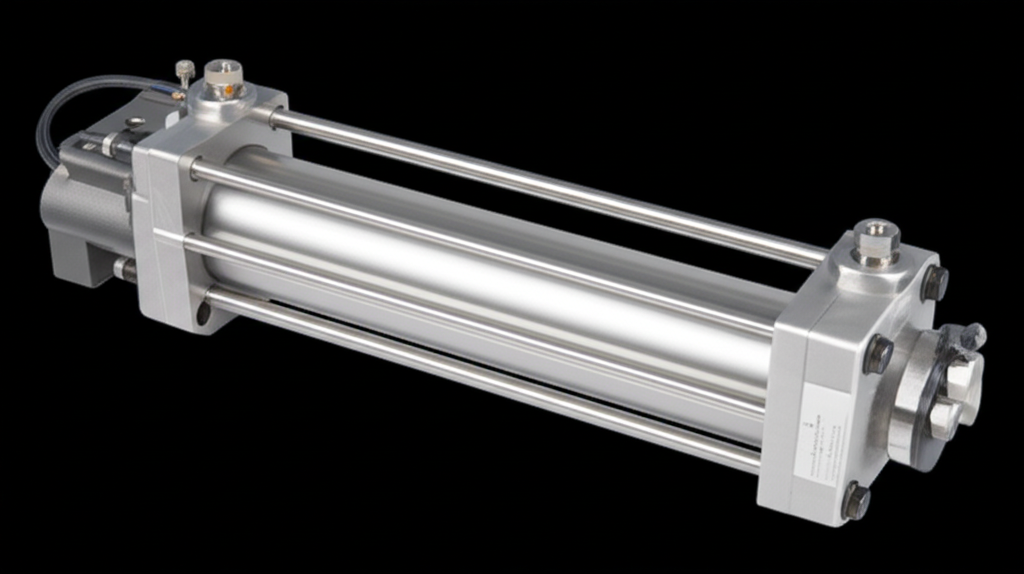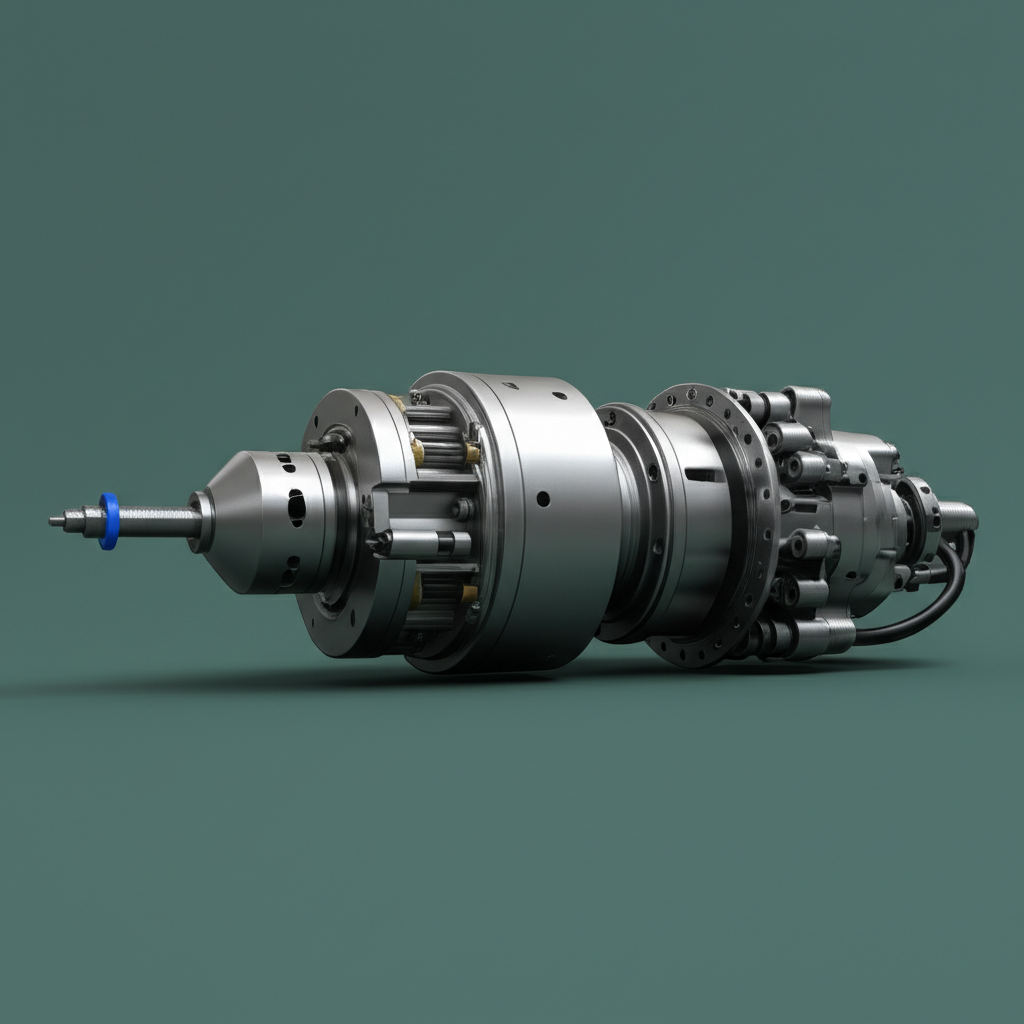When you press a plaything automobile throughout the flooring or see a train go on a track, you are enjoying linear activity. Linear movement, additionally called rectilinear activity, is a keynote in physics. It suggests something moves in a straight line. Yet why does this issue? And just how can you identify it in real life? Let’s check out how linear activity makes our world job, maintains points basic, and aids firms like Jimi (Jimi Technology Co., Ltd.) transform the way you move things everyday.
If you want to know more vedioes about linear motions and electric cylinders, you can go to visit our Youtube Chanel.
- What Defines Linear Motion?
Linear motion suggests moving in a straight line. Allow’s make it even more clear!
1.1 Definition: Motion Along a Straight Line
Rectilinear motion is when an item moves from one area to an additional, but always in the same direction. It does not transform. It does not curve. It’s just like moving a ruler across a lengthy workdesk.
Straight movement is necessary in kinematics. It aids us find out about displacement, velocity, acceleration, speed, range, and just how points move straight, not round.
1.2 Key Characteristics to Identify Linear Motion
- No turns: The item keeps going directly.
- Constant direction: It never ever curves.
- Changes in speed: It can go fast or slow, yet constantly directly.
- Single axis: It moves along just one course– entrusted to right, up or down, or on a straight ramp.
1.3 Types of Linear Motion
- Uniform linear motion: The item relocates at the exact same speed, like a train gliding on a straight track.
- Non-uniform linear motion: The things speeds up or reduces, like an automobile picking up a traffic signal.
Linear movement turns up anywhere. From your day at college to huge machines in manufacturing facilities, easy straight-line motion is throughout. Let’s take a look at instances you see every day.
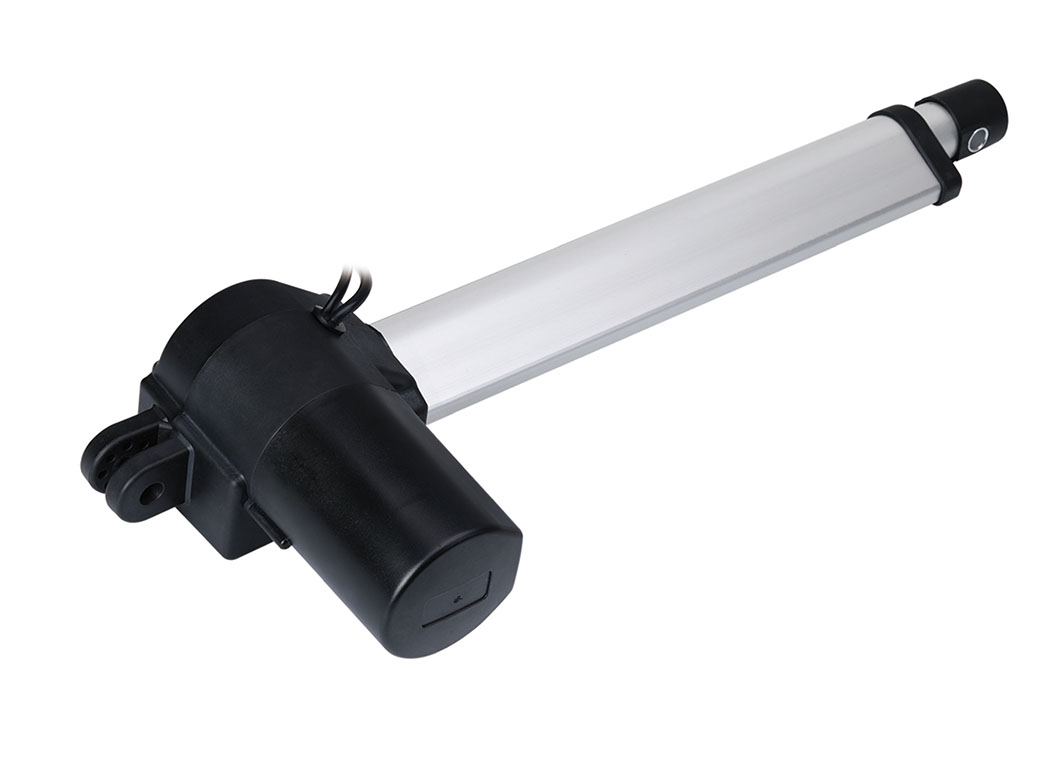
- Everyday Objects Exhibiting Linear Motion
2.1 A Car Driving on a Perfectly Straight Road
When a cars and truck moves right, all the force pushes it along that road.
2.2 An Elevator Moving Vertically Up or Down
See an elevator? It travels up and down—never sideways. Cables and guide rails keep it straight and safe for you.
2.3 A Person Walking in a Straight Line
When you walk across a field, you sometimes walk in a straight line. Your displacement is simple to measure. Just mark the beginning and end—no twisty paths.
2.4 A Book Sliding Across a Flat Table
Push your book, and watch. If you push it straight and do not spin it, it slides right across. This is one-dimensional motion—physics says so!
2.5 A Drawer Being Opened or Closed
Pull your desk drawer straight out, and push it back in. The slider mechanism guides it along a straight path.
2.6 A Bowling Ball Rolling Down a Straight Lane
At the bowling alley, that heavy ball rolls forward—no zigzags—because the lane is straight. This makes it easy for you to knock down pins.
- Linear Motion in Sports and Recreation
3.1 A Sprinter Running a 100-Meter Dash
Athletes in a dash run as straight as possible. They aim to go from start to finish in the least time. Any side-step slows them down.
3.2 A Bobsled on a Straight Section of Track
In bobsledding, the sled zooms on straight parts. Here, it moves the fastest and does not have to turn.
3.3 A Swimmer Gliding in a Straight Lane
Swimmers want to use all their power for forward motion. A straight lane saves energy and time.
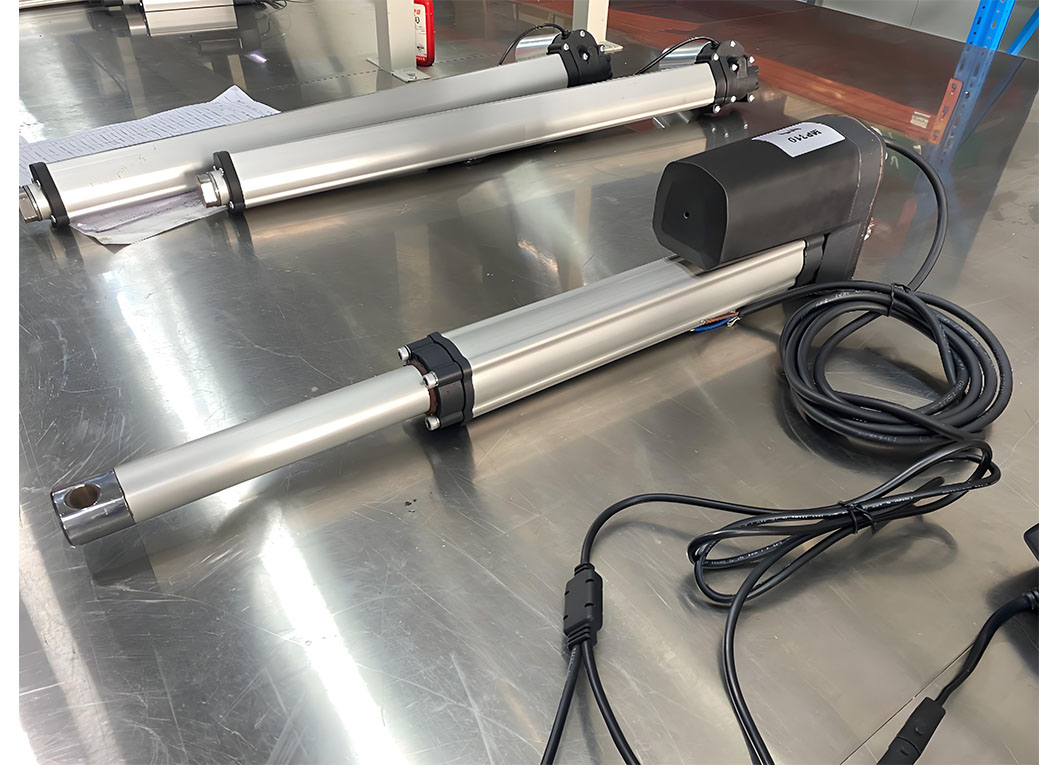
3.4 A Weightlifter Raising and Lowering a Barbell
When lifting, the best path is a straight line. The barbell moves only up and down. Physics says that is the most efficient.
- Engineering and Industrial Applications of Linear Motion
4.1 Pistons Within an Internal Combustion Engine
Look inside an engine—the pistons go up and down in a straight path. This is the heart of how engines turn heat into motion.
4.2 Conveyor Belts Transporting Goods
In a factory, the conveyor belt moves packages or toys along. The belt is a straight line. This keeps everything neat and fast.
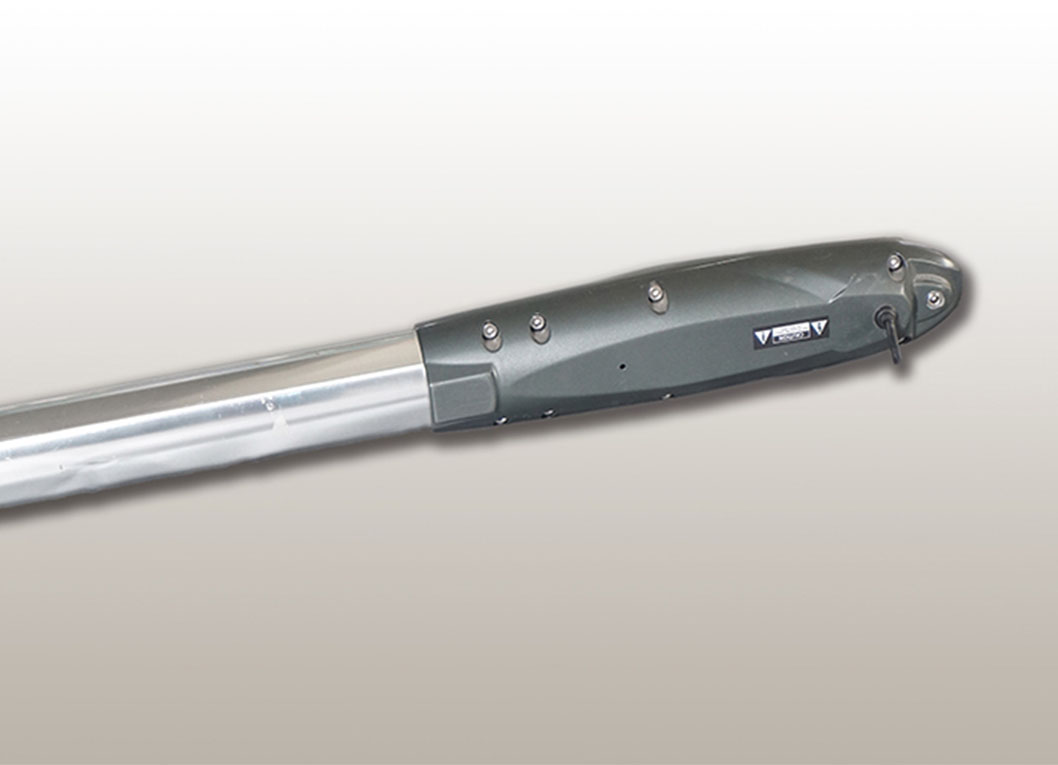
4.3 Linear Actuators in Machinery
Linear actuators are special machines that help things move in a straight line. For example, you can use them to raise or lower a bed, open a heavy window, or move an industrial robot. Jimi Technology Co., Ltd. is a trusted expert for these solutions. Our products, like Electric Linear Actuators and Industrial Linear Actuators, are used all over the world.
4.4 A Train Moving on a Straight Railway Track
On some train trips, the tracks do not bend for miles. That’s perfect linear motion.
4.5 CNC Machine Axes (Linear Translation)
A CNC machine uses axes that move straight. This lets the machine cut, shape, or place things with amazing precision.
- Natural Phenomena Modeling Linear Motion
5.1 A Freely Falling Object (e.g., an Apple)
Drop an apple, and it falls straight down. Gravity pulls it in a straight vertical line—unless the wind blows it away.
5.2 Light Rays Traveling Through a Vacuum
In empty space, light moves in the straightest line possible. If nothing blocks it, it will keep going forever.
5.3 A Raindrop Falling Vertically (Idealized)
A single, round raindrop will fall straight—unless a gust of wind says otherwise!
Chart: Real-World Linear Motion Examples and Their Applicability
| Example | Description | Real-World Use | Limitations |
|---|---|---|---|
| Car on Straight Road | Fixed, non-curving path | Speed, stopping | Air, bumps, friction |
| Elevator | Purely up and down | Lifts, safety | Cable stretch, rail rub |
| Drawer | Slides in/out of cabinet | Storage, design | Friction, misalignment |
| 100-Meter Sprinter | Straight running lane | Race timing | Air drag, small sways |
| Bowling Ball | Straight lane | Game, force analysis | Spin, lane oil |
| Piston in Engine | Back and forth motion | Engine power | Cylinder friction |
| Conveyor Belt | Moves products forward | Factory automation | Belt slip, item shift |
| Linear Actuator | Built-in straight motion | Automation, lifts | Load, heat, wear |
| Free-Falling Object | Straight down under gravity | Gravity studies | Air drag, wind |
| Light Ray in Vacuum | Perfect straight line | Optics, science | Blocked or bent by gravity |
- Distinguishing Linear Motion: What It Is NOT
It’s easy to think anything that sort of goes straight is linear motion. But physics does not work that way. Here is what does not count:
- Not circular motion: Like a merry-go-round or wheel turning.
- Not projectile motion (overall): Like a basketball arc—it curves.
- Not oscillatory/vibratory motion: Like a swinging pendulum.
- Not rotational motion: Like a spinning top, unless you look at just one point on its edge.
- Why Understanding Linear Motion Matters
7.1 Foundation of Kinematics and Physics
Linear motion is where you start in physics. It’s the building block for learning how all objects move.
7.2 Crucial for Engineering Design and Analysis
Engineers use straight-line movement in machines, cars, elevators, and robots. Without precise linear actuators, these machines would not work as well. Reliable providers like Jimi help make big ideas real.
7.3 Simplifies Complex Motions
If you know linear motion, you can split bigger, messier moves into smaller, easy-to-understand steps. That’s why linear actuators, like those found at China Linear Actuator Manufacturer, are chosen for important tasks in industrial automation.
Why Jimi Linear Actuators Lead the Way
At Jimi Technology Co., Ltd., we make the best linear actuators for every need. Do you want to move something up, down, out, or in—with just a button? Our solutions use electricity to turn energy into powerful, smooth, straight-line movement. This is the magic behind servo motor actuators and standing desk actuators.
We’ve helped factories, homes, schools, and labs become safer, more efficient, and easier for everyone. Our customers call us not just a seller, but an expert, a trusted partner, and a creative problem solver.
Conclusion: The Ubiquity and Importance of Straight-Line Movement
Linear motion is everywhere—in games, in machines, and in nature. When you see a car on a straight road, a ball rolling on a lane, or a piston pushing in an engine, you see the magic of moving in a straight line.
Why does it matter? It keeps things simple, makes work easier, and allows companies like ours to create tools that change the world. If you want to know more about making your world move in a straight line, let our experts help. With Jimi, every move is the right move—simple, safe, and always straight.
References
- Galileo Galilei and Isaac Newton: Founders of modern physics, see any basic “kinematics” textbook.
- National High School Physics Education Reports (data: types of motion confusion, 2023)
- Jimi Technology Co., Ltd., Electric Linear Actuators (manufacturing data)
For more on our linear actuators and automation solutions, see:



